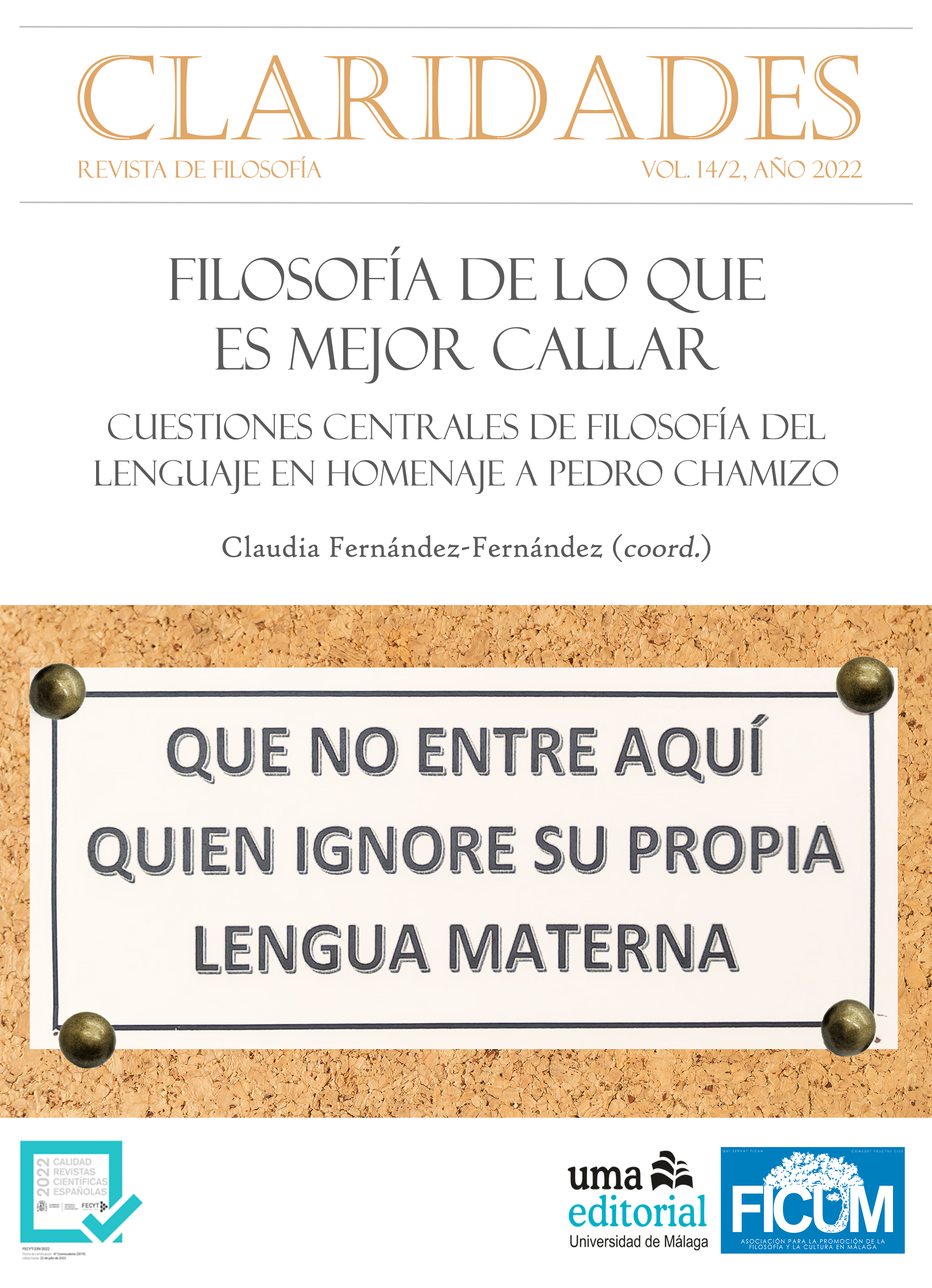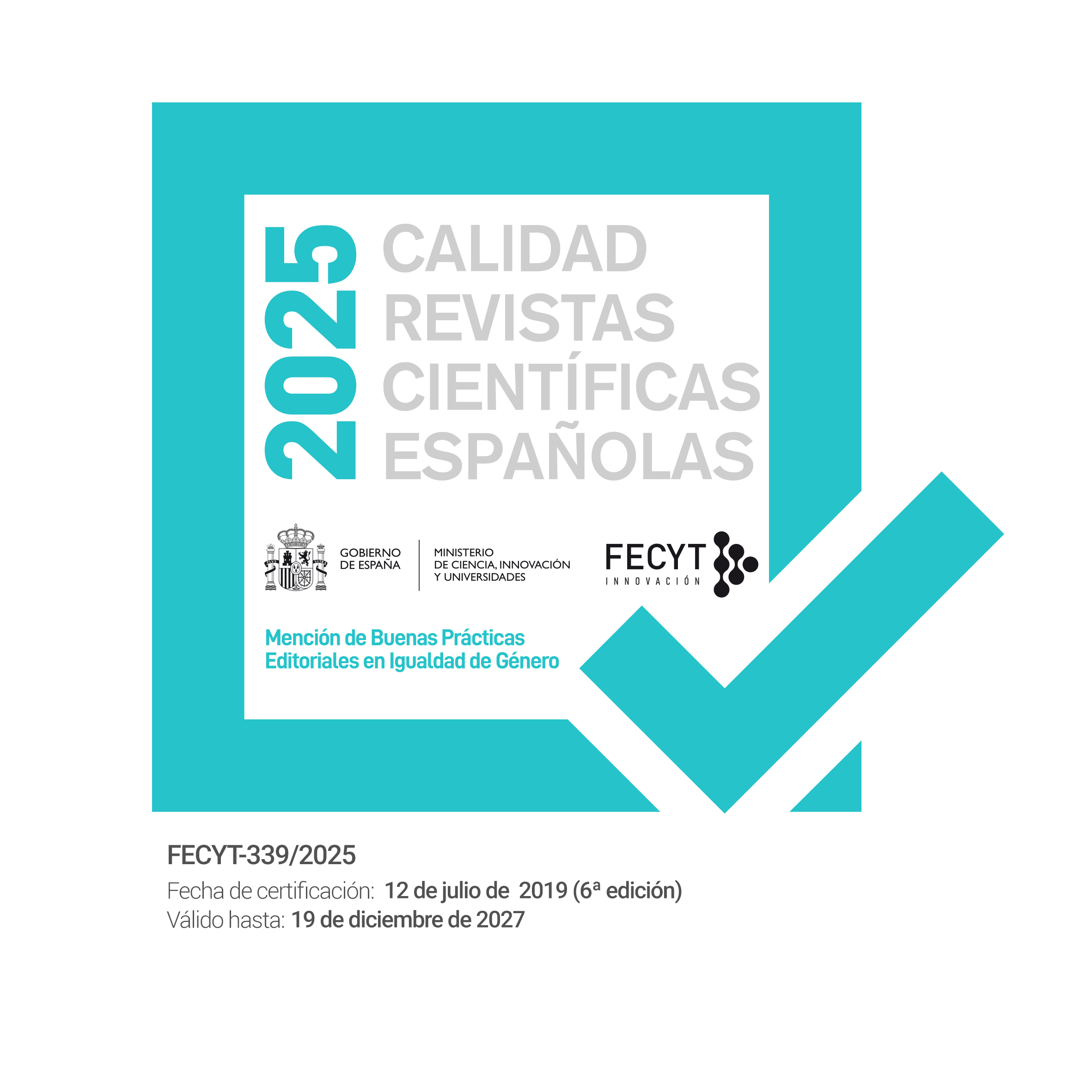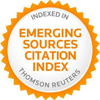De lo que deberíamos callar
El silencio y lo místico en Wittgenstein y Russell
DOI:
https://doi.org/10.24310/Claridadescrf.v14i2.13699Palabras clave:
Guerra, Misticismo, Ética, Educación religiosaResumen
Los puntos de vista sobre el misticismo de Ludwig Wittgenstein y Bertrand Russell muestran su intenso interés por esta materia y cómo exploraron su naturaleza y posibilidades. Wittgenstein, quien de adolescente había abandonado su fe católica, se convirtió en un buscador religioso, lo que comenzó desde sus miedos a los terrores de la guerra. Se había alistado como soldado para luchar por el Imperio Austrohúngaro, periodo
en el que su terror a la guerra le llevó a rezarle a Dios por refugio. El descubrimiento fortuito del libro de León Tolstói El evangelio abreviado le abrió la mente a Wittgenstein hacia la importancia de Jesús y le condujo a valorar de nuevo la cristiandad. El interés de Russell por el misticismo aparece en un artículo publicado en 1914 y parece deberse a la curiosidad, más que a la religiosidad. Desde muy joven a Russell le interesaron mucho las matemáticas y llegó a percibir que esto podría entenderse como misticismo
matemático. En ambos casos Wittgenstein y Russell compartieron un interés apasionado por el misticismo, con Wittgenstein concluyendo en su Tractatus que lo místico era trascendental, mientras que Russell eligió examinar cómo el misticismo y el empirismo se podrían complementar el uno al otro.
Descargas
Métricas
Publicación Facts
Perfil de revisores N/D
Información adicional autores
Indexado: {$indexList}
-
Indexado en
- Sociedad Académica/Grupo
- N/D
- Editora:
- Asociación para la promoción de la filosofía y la cultura en Málaga (FICUM) y UMAEditorial
Citas
Atkinson, J. R. (2011): The Mystical in Wittgenstein’s Early Writings, New York and London: Routeldge.
Agustín de Hipona (1960): The Confessions, trans. with an Introduction and Notes by John K. Ryan, New York: An Image book by Doubleday.
Engelmann, P. (1967). Letters from Ludwig Wittgenstein with a Memoir, Oxford: Blackwell.
James, W. (1928): The Varieties of Religious Experience, London and New York: Longmans: Green and Company.
McGuinness, B. (1988): Wittgenstein: A Life: Young Ludwig, 1889-1921, London: Duckworth.
Plato, Phaedo trans. by R. Hackforth, FBA, Cambridge and New York: Cambridge University Press.
Quinn, P. (2015): Wittgenstein on Thinking, Learning and Teaching Bern, Oxford: Peter Lang.
Rhees, R. ed. (1984): Recollections of Wittgenstein, Oxford and New York: Oxford University Press.
Russell, B. (1958): Portraits from Memory and other essays, London: George Allen and Unwin.
Russell, B. (1959): My Philosophical Development, New York: Simon and Schuster.
Russell, B. (2004): History of Western Philosophy, London: Taylor and Francis Ltd., Routledge.
Russell, B. (1998): Mysticism and Logic and other essays, London: Rowan and Littlefield.
Tolstoy, L. (1997): The Gospel in Brief, trans. by Isabel Hapgood, ed. with preface by F.A. Flowers, Lincoln and London: University of Nebraska.
Wittgenstein, L. (1961): Tractatus Logico-Philosophicus trans. by Brian McGuinness and F.F. Pears, London: Routlesdge & Kegan Paul.
Wittgenstein, L. (1975): On Certainty, G.E.M. Anscombe and G.H. von Wright eds., trans. by Denis Paul and G.E.M. Anscombe, Oxford: Blackwell.
Wittgenstein, L. (1978): Remarks on the Foundations of |Mathematics, G.E.M. Anscombe, Rush Rhees and G.H.von Wright, eds., Oxford: Blackwell.
Wittgenstein, L. (1998): Culture and Value, revised and ed. by G.H. von Wright in collaboration with Heikke Nyman, trans. by Peter Winch, Oxford: Blackwell.
Wittgenstein, L. (2001): Philosophical Investigation, P.M.S. Hacker and Joachim Schultz, eds. Revised 4the edn., London: Wiley-Blackwell.
Wittgenstein, L. (2004): Notebooks: 1914-1916, G.H von Wright and G.E.M. Anscombe, Oxford: Blackwell.
Wittgenstein, L. (2014): Lecture on Ethics, Oxford: John Wiley and Sons.
Descargas
Publicado
Cómo citar
Número
Sección
Licencia
Esta revista provee acceso libre inmediato a su contenido bajo el principio de hacer disponible gratuitamente la investigación al público. Todos los contenidos publicados en Claridades. Revista de Filosofía, están sujetos a la licencia Creative Commons Reconocimento-NoComercia-Compartirigual 4.0 cuyo texto completo puede consultar en <http://creativecommons.org/licenses/by-nc-sa/4.0>
Es responsabilidad de los autores/as obtener los permisos necesarios de las imágenes que están sujetas a derechos de autor.
Los autores/as cuyas contribuciones sean aceptadas para su publicación en esta revista conservarán el derecho no exclusivo de utilizar sus
contribuciones con fines académicos, de investigación y educativos, incluyendo el auto-archivo o depósito en repositorios de acceso abierto de cualquier tipo.
La edición electrónica de esta revista esta editada por la Editorial de la Universidad de Málaga (UmaEditorial), siendo necesario citar la procedencia en cualquier reproducción parcial o total.


















6.png)
